**PLAIN OF JARS IN LAOS – Breathtaking**
A grassy plain in the highlands of Laos is speckled with something out of the ordinary thousands of huge ancient stone jars. The jars have been studied for decades, yet mysterious details continue to puzzle researchers and raise more questions than answers.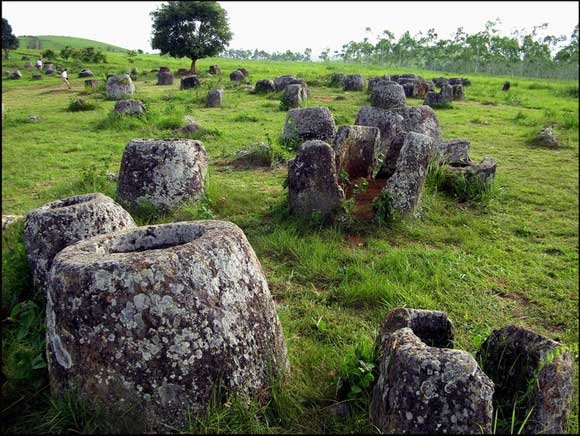
The impressive archeological site was of little interest to western researchers until the 1930s when a French scientist name Madelein Colani began surveying the area. Her research however revealed major findings like
a nearby cave with human remains, suggesting that the jars may have been used as funeral lions for chieftains;
revealed pulling details; and
uncovered organic materials in the cave.
Archeologists say that the structure, some of which date back to 2500 years ago, may be burial related, though one off-reported local legend declares that a tribe of giants used them as wine chalices to celebrate a victory. The jars are mostly not decorated, but some feature carved human figures, faces or symbols. 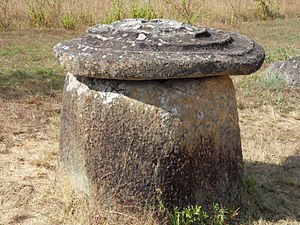
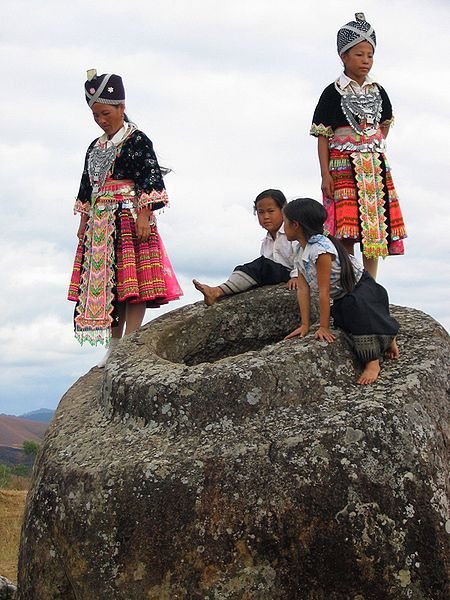 India 600 miles away but its still unclear which civilization made the ones in Laos.
India 600 miles away but its still unclear which civilization made the ones in Laos.
Since the last research done in the 1930s, an Australian research team was the first to conduct the first major excavation a recent research in 2016, which provided some long-awaited insight into the jar’s purpose. The most interesting part of the plain of the jar’s enigmatic origin story involves other sites of its kind. Research have also uncovered similar clusters of jars throughout Asia that when connected with in Laos, form a part all the way to northern India. This has led scientists to believe that the jars were used in an international trade route through Asia. 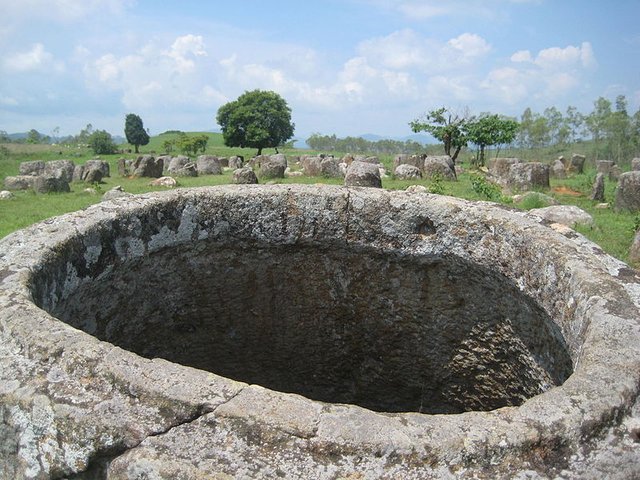 It may be possible that rain water was conveyed in the jars for use in the dry seasons.
It may be possible that rain water was conveyed in the jars for use in the dry seasons.
More recently, UNESCO has classified the area as a tentative addition to the world’s heritage list, Important but Imperial. Indeed, there is another layer of history aside from the ancient puzzle. In the 1960s and 70s, during the Indochina war, American forces dropped more than 2 million tons of bombs on Laos and the plain of jars area is still pocked with craters formed by those explosions. 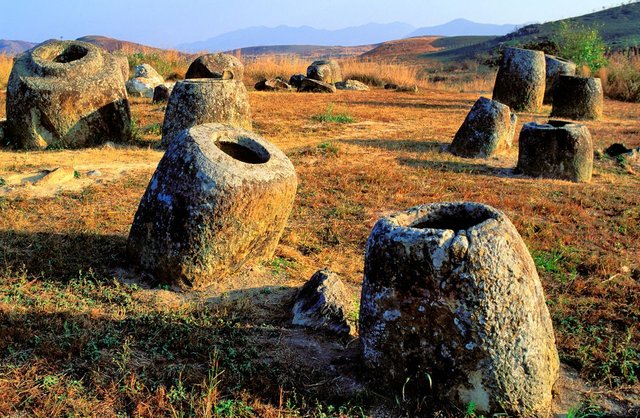 The region still include unexploded bombs, land mines and other unexploded weapons, and as the researchers revealed Laos is one of the most heavily bombed places on the planet. The Plain of Jars is still the most popular tourist attraction in the world, despite the military attacks over the years.
The region still include unexploded bombs, land mines and other unexploded weapons, and as the researchers revealed Laos is one of the most heavily bombed places on the planet. The Plain of Jars is still the most popular tourist attraction in the world, despite the military attacks over the years.
Source: Wikipedia
Links :
https://en.m.wikipedia.org/wiki/Plain_of_Jars
http://factsanddetails.com/southeast-asia/Laos/sub5_3a/entry-2933.html